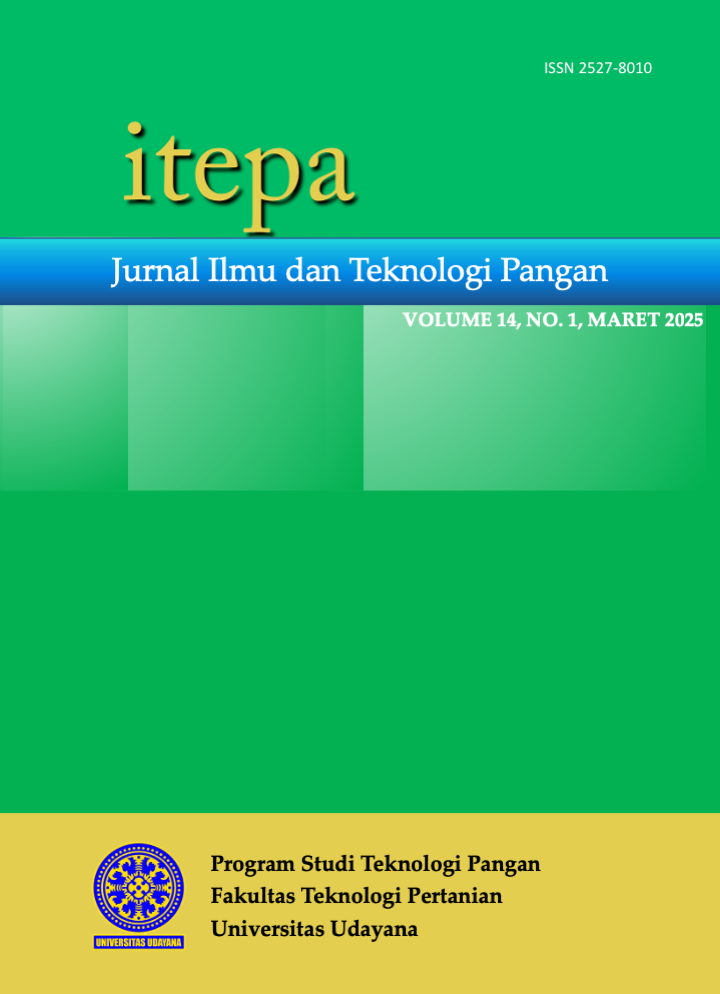Pengaruh Lama Fermentasi Lanjutan Terhadap Karakteristik Kimia dan Sensoris Kombucha Setelah Penambahan Sari Mangga Arumanis (Mangifera indica L.)
Abstract
Kombucha is a fermented beverage made from a solution of tea, sugar, and kombucha culture microbes. Kombucha has a sour taste and pungent aroma that reduces sensory acceptability. The addition of mango juice in secondary fermentation with the right period, is expected to improve the acceptability of kombucha. This study aims to determine the effect of secondary fermentation time after the addition of arumanis mango juice on kombucha characteristics and determine the right length of secondary fermentation to produce kombucha with the best characteristics. This study uses a Completely Randomized Design with secondary fermentation duration treatments consisting of five levels: F0 (0 days); F1 (2 days); F3 (4 days), F4 (6 days), and F6 (8 days) with 3 replications. Parameters observed were vitamin C content, total acid, pH, TSS, alcohol content, total sugar, and sensory evaluation. Data were analyzed by Analysis of Variance and if treatments were significantly affected, then Duncan's Multiple Range Test was conducted. The results showed that the treatment of secondary fermentation duration had a significant effect on vitamin C, total acid, pH, total soluble solids, total sugar, and all sensory parameters. The best treatment was obtained at an secondary fermentation time of 2 days with vitamin C content of 11.83 mg/ml, total acid of 2.14 percent, pH of 3.22, TSS of 9.89oBrix, alcohol content of 0.09 percent, total sugar of 5.17 percent, color preference was slightly like, aroma was slightly strong mango and slightly strong original kombucha, taste was sweet and slightly sour taste, sparkling sensation was slightly strong, and overall acceptance favored by panelists.
Keywords: arumanis mango, kombucha, secondary fermentation, sensory and chemical characteristics





